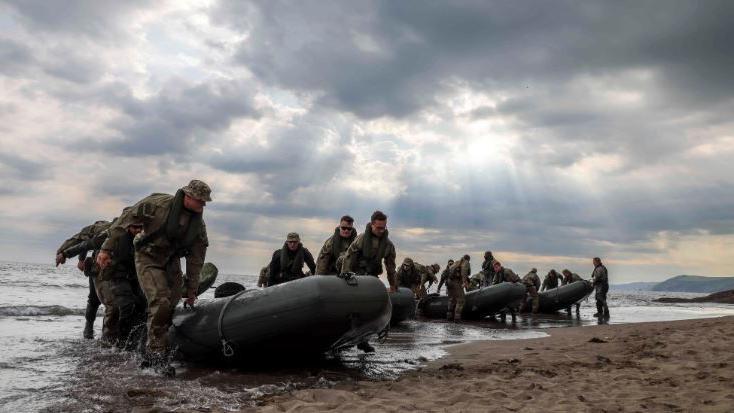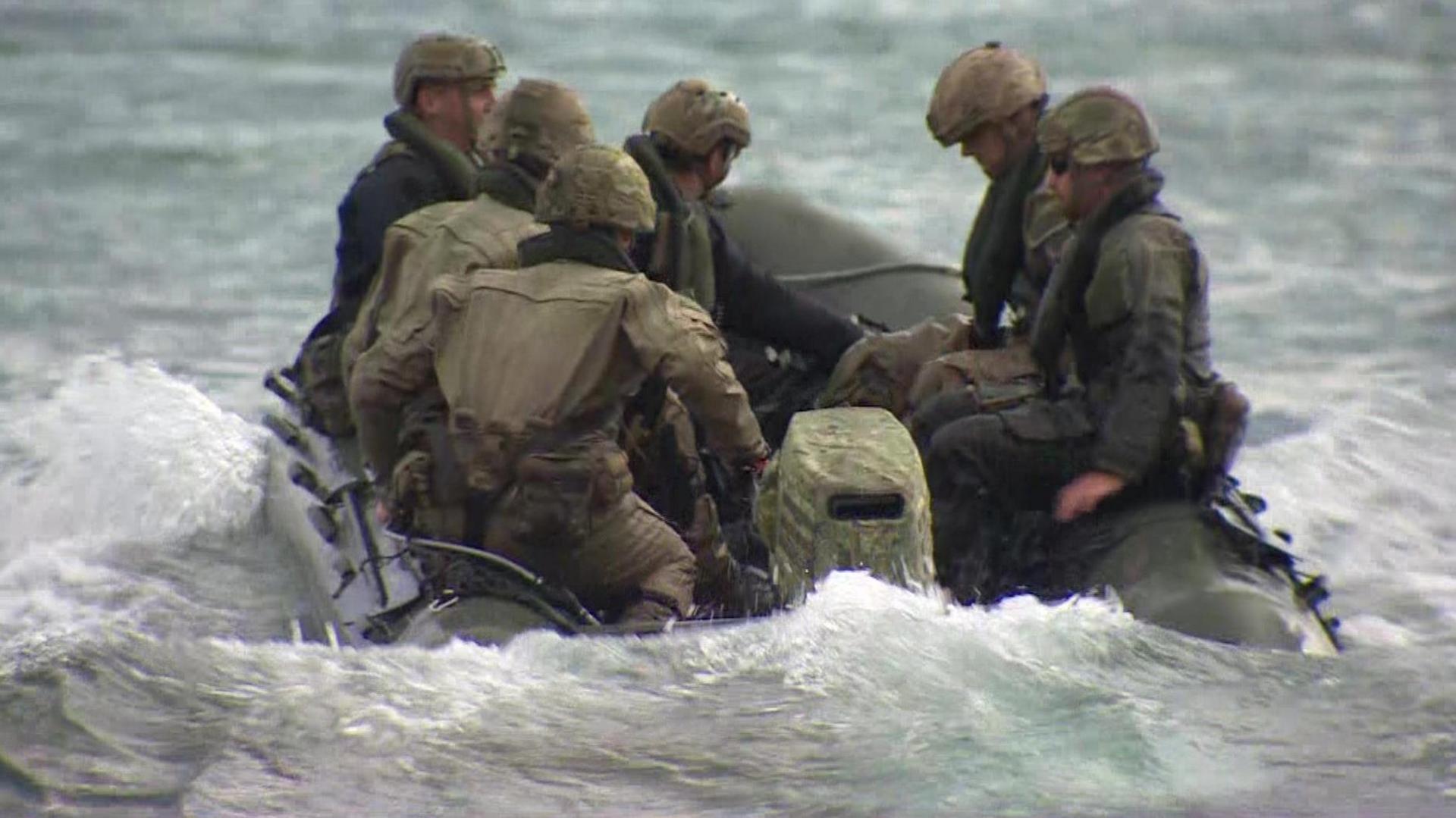Marines training for role in D-Day commemoration

The Plymouth-based 47 Commando (Raiding Group) has undergone drills on Tregantle Beach at Whitsand Bay
- Published
Royal Marines have been training on a Cornish beach in preparation for the commemoration of D-Day.
Plymouth-based 47 Commando (Raiding Group) has undergone drills on Tregantle Beach at Whitsand Bay.
On 4 June a small flotilla of Royal Marines landing and raiding craft will leave Portsmouth for Gold Beach and Port-en-Bessin in Normandy to re-enact the actions of 47 Commando in 1944, 80 years ago.
Some 133 Royal Marines were killed on D-Day and one in 40 marines – more than 430 men – died during the ten-week-long campaign.

The 80th anniversary channel crossing will serve as a training exercise
The 80th anniversary Channel crossing will serve as a training exercise for 40 present-day commandos undertaking landing and raiding craft training.
Major Andy Atkinson of 47 Commando. said: "It’s a great honour and a privilege to take our modern-day landing craft across the English Channel and land on the D-Day beaches.
"47 Commando is one of the Commandos that landed on D-Day and we’re yomping the same route taken by our World War Two predecessors when they fought their way to Port-en Bessin, 80 years ago."
On Tregantle Beach marines have used small inshore raiding craft, which are for covert coastline landings.
Conducting ‘surf drills’, the crews were taught how to skilfully manoeuvre their raiding craft in rough conditions.
On D-Day in 1944, five Royal Marine Commando units assaulted the beaches alongside three Army Commando units, formed into two Special Service Brigades.
They then pushed west towards Port-en-Bessin to expand the Allied beachhead, potentially link up with US forces at Omaha Beach and eliminate the German garrison there.
Marines went on to secure the Normandy end of the pipeline under the ocean, which would provide the fuel needed to power the Allies’ liberation of Western Europe.
Follow BBC Cornwall on X (formerly Twitter), external, Facebook, external and Instagram, external. Follow BBC Devon on X (formerly Twitter), external, Facebook, external and Instagram, external. Send your story ideas to spotlight@bbc.co.uk, external.
More stories about Royal Marines
- Published31 July 2023
